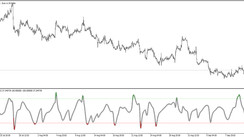Proprietary Trading Firms: An Exciting Prospect for Traders
Proprietary trading firms present a unique prospect for traders, providing the chance to trade using a collective pool of funds rather than relying on individual capital. This arrangement is mutually beneficial, offering a piece of the profit pie to traders for their skilled trades.
Several proprietary ("prop") trading firms have created a framework wherein the trader garners a portion of the profits generated through their trades. This model utilized by prop trading firms holds lucrative potential, yet it also comes with formidable challenges that can obstruct the path to profitability.
Key Insights to Remember
- Proprietary trading firms empower traders to engage in trades using a common capital pool, rather than personal funds, and share in the generated profit.
- Commonly referred to as "proprietary trading" or "prop" firms, a career with these firms can be financially rewarding.
- The benefits of being a prop trader encompass a supportive environment with seasoned traders and access to greater capital.
- The drawbacks include fierce competition and the possibility of substantial fees.
The Life of a Proprietary Day Trader
As a prop day trader, you generally operate as a contract worker for a prop trading firm rather than as a full-time employee. Most prop traders do not receive an hourly wage, a fixed salary, or any perks like healthcare. Their compensation is directly tied to their ability to generate a profit, which can sometimes take months.
Prop traders interact with various financial instruments such as stocks (also known as equities), currencies, options contracts, or futures on major global exchanges. Their primary aim is to secure a profit through their trades. As a prop day trader, your only client is the firm that you have contracted with. You don't participate in phone sales or cold calls to potential customers. Prop traders don't play the role of a stockbroker or financial adviser, and their interest doesn't lie in the long-term performance of a stock. Their sole focus is on immediate trading trends.
There are various types of proprietary day traders. Some might only execute a handful of trades in a day with the aim of substantial gains. Others might make hundreds of minor trades daily, swiftly entering and exiting the market. Some may trade for the entirety of the day, while others might only trade during specific market hours.
Proprietary day traders might operate from an office, where they receive initial training, or some firms might allow them to work remotely. Firms typically permit remote work for seasoned traders with a proven history of success with the firm, or those who are hired based on a successful trading track record.
The Benefits of Proprietary Trading
Working for a trading firm comes with a plethora of benefits:
- Collaborating with traders who can guide you to profitability.
- Having access to a larger pool of trading capital than you would individually.
- Facing lower commissions compared to those confronted by retail day traders.
- Incurring lower trading costs compared to independent traders.
- Receiving professional training from seasoned day traders. Although you might have to pay for this training, it assists the firm in filtering out non-serious traders.
- Not being burdened by the $25,000 minimum account balance required for day trading stocks.
If you are a novice in day trading, training is crucial. Learning from successful traders is key to developing your skills.
The Drawbacks of Proprietary Trading
However, working for a firm also comes with certain disadvantages compared to trading independently:
- A large number of firms have transitioned online for cost efficiency, which means you might not be physically present among experienced traders when starting. Tools like chat rooms and Skype are beneficial but might not be as effective as having in-person traders to answer your queries.
- With the proliferation of online firms, competition for seats on physical trading floors is intense.
- The advancement of retail technology has reduced the edge that proprietary trading firms once held. Retail traders can now avail trading platforms and internet speeds that compete with most proprietary resources.
- Despite prop firms generally charging lower commissions, active retail day traders might be able to negotiate better commission rates with their broker.
- Some firms charge traders seat rental fees, software access fees, and/or marked-up commissions. A fraction of the profits might also be deducted.
If you are a seasoned trader, training might not hold as much importance. Instead, your focus should be on securing the most competitive structure so that a higher portion of your profits stays with you.
If you're contemplating leaving your current job to day trade, understand that it may take several months or more to start generating income. Moreover, that income can be unpredictable with no guaranteed success.
Typical Structure of Proprietary Firms
Proprietary trading firms usually follow one of two models or a slight variation of them:
- The firm retains a portion of your profits, anywhere from 20% to 50%. As a trader, you may provide little to no capital, though training fees may apply. Firms might also necessitate a deposit to cover any losses incurred. The firm provides sufficient trading capital based on your experience and skill set. In this model, the major income source for the firm is the profits from trades. Commissions are usually low as the firm gains little or nothing from them, allowing traders to earn more. The firm might also charge a seat rental or software fee. This model is quite popular in Canada and other parts of the world.
- The firm retains minimal or no part of your profits, giving you 90% to 100% of your earnings. Firms leverage your capital, implying that you generally need to have several thousand dollars or more to get started. You get more capital than you would by trading on your own, but the firm profits from training fees, higher commissions, seat fees, and software fees. This model is prevalent in the United States.
A trader may also be offered a salary plus possible bonuses, and then trained or hired as an employee. This is more common with financial and commodity companies that also have a trading floor. In this case, you are being hired by a company to work on their trading floor, a division that trades company money. Hours for this job are typically long, from eight to 12 hours per day. Comparatively, prop traders usually work less than eight hours, and home-based traders might work for less than three hours.
Commonly Asked Questions
How to establish a proprietary trading firm?
All you need to set up a prop trading firm is a substantial amount of capital. Prop traders utilize the firm's capital, and if you're initiating the firm, then you'll be the one providing it. Once you secure the necessary capital, you'll need to hire traders to deploy that capital in the markets. Additionally, you will need to register your business entity under the structure that is most suitable for your business.
Why is proprietary trading banned for banks?
The "Volcker Rule," a U.S. law, significantly curbed banks from prop trading in the aftermath of the 2008 financial crisis. The objective was to mitigate risky behavior at major financial institutions upon which consumers rely. If precarious day trading puts a bank at the risk of closure, it could create problems for any customers with checking or savings accounts at that bank. By prohibiting prop trading, the government aimed to separate investment banks from traditional, deposit account banks.





